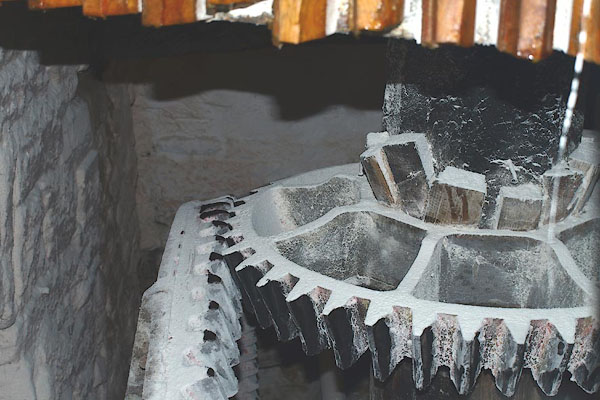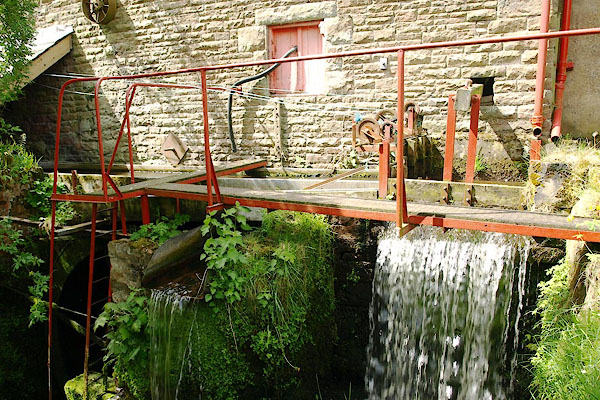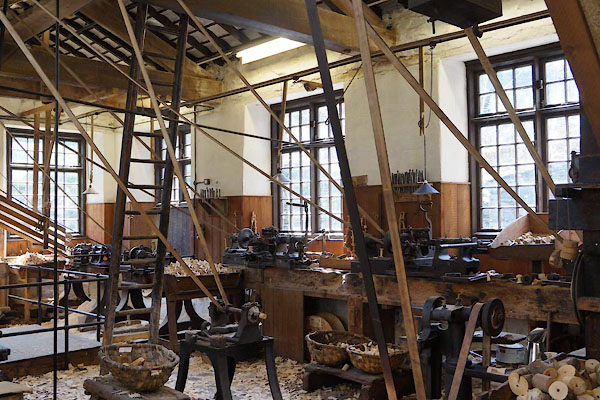 |
 |
   |
|
|
|
|
|
| also see:- |
 gunpowder mills, Cumbria gunpowder mills, Cumbria |
|
|
|
|
|
Wind and water mills were the first complex machines devised by man, and their importance
only waned when steam engines came. Windmills and sailing ships were the most expert
uses of wind by man: wind power is sun power.
|
|

BQM82.jpg
|
|
A few of the water mills in Cumbria are still working mills. There are fewer old wind
mills. With the old mill workings in place perhaps they could be made to generate
electricity, whch some of the old mills did before.
|
|

BQM73.jpg Mill race and sluices at mill, Little Salkeld
|
|
When you see the history on any particular mill it is not unusual to see its functions
as a corn mill, fulling mill, paper mill, saw mill, bobbin mill, weaving or spinning
mill, etc. Some mills had more than one process going on at the same time. The water
mill is not a pretty rural object for grinding corn, it is a source of power, for
whatever work needs to be done.
|
|

CAJ42.jpg Turning shop, Stott Park Bobbin Mill
|
|
|
references:-
|
|
|
Hughes, J: : Cumberland Windmills: TransCWAAS: new series vol.72: pp.126-
Kelly, Michelle &Walsh, Deborah: 2015: Mills of Ambleside: Armitt Trust (Ambleside,
Cumbria):: ISBN 0 953944 4 8
Somervell, John: 1930: Water Power Mills in South Westmorland: Wilson, Titus (Kendal,
Westmorland)
|
|
|
|
Bennett, R &Elton, J: 1899: History of Corn Milling
Brangwyn, F &Preston, H: 1923: Windmills: (London)
Evans, George Ewart: 1969: Farm and the Village: (London)
Finch, W Coles: 1933: Windmills and Watermills: (London)
Freese, S W: 1957: Windmills and Millwrighting: (Cambridge)
Hopkins, R T &Freese, S: 1931: in Search of English Windmills: (London)
Reynolds, John: 1970: Windmills and Watermills: Evelyn, Hugh (London):: ISBN 0 238
78943 8; with bibliography
Vince, John: 1978: Mills and Millwrighting: Shire Publications (Princes Risborough,
Buckinghamshire):: ISBN 0 85263 431 5
|
|
|





 gunpowder mills, Cumbria
gunpowder mills, Cumbria


